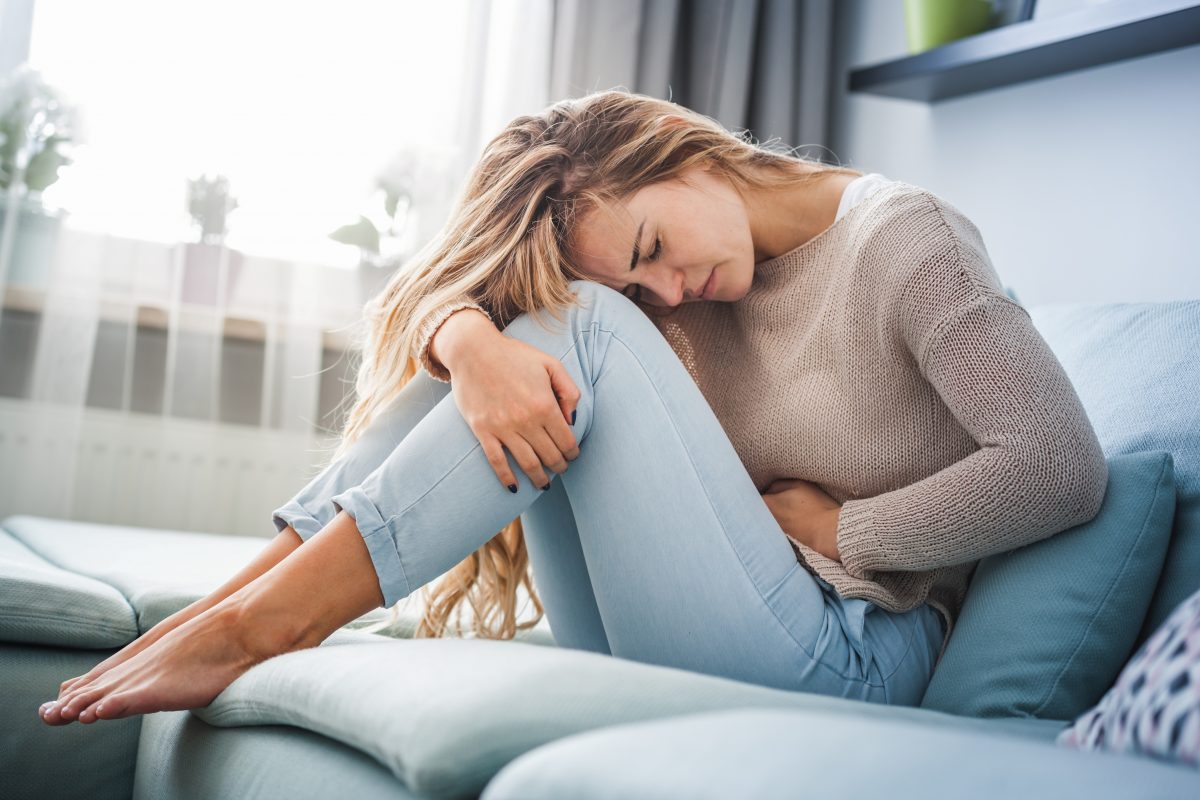Low FODMAP in Endometriosis
- Low FODMAP diet
If you are struggling with endometriosis you might be wondering if there is such a thing as an endometriosis diet – a diet that could help manage your condition.
In this article, we will discuss what endometriosis is and if the low FODMAP diet can help manage symptoms.

WHAT IS ENDOMETRIOSIS?
Endometriosis is a common chronic condition which affects 1 in 10 women in the UK (1). Sadly, there is no cure for endometriosis (1).
In endometriosis, tissue similar to the lining of the womb is found in places such as the ovaries, bowel, or bladder (1).
This tissue acts similarly to tissue in the womb – it thickens, peels, and bleeds but this blood has no way to escape. That causes lesions, cysts, and local inflammation which is experienced as pelvic pain (2).
WHAT IS THE CAUSE OF ENDOMETRIOSIS?
It is still not well understood what causes endometriosis, it is thought that endometriosis is a multifactorial disease (3).
The following factors are thought to play a role in the pathogenesis (3):
- Genetic predisposition
- Environmental factors – exposure to toxins (e.g. dioxin)
- Immune dysfunction
- Retrograde menstruation – when some of the womb lining flows backwards, implants on the organs, and grows
- Lymphatic or circulatory spread
- Metaplasia – the process in which one type of cell changes into another type of cell
SYMPTOMS OF ENDOMETRIOSIS
The symptoms of endometriosis vary in type and severity. Some of the known types are (4):
- Superficial endometriosis – found mainly on the pelvic peritoneum
- Cystic ovarian endometriosis, called endometrioma – found in the ovaries
- Deep endometriosis – found in the recto-vaginal septum, bladder, and bowel
Some common symptoms include (1):
- Fatigue
- Pelvic pain
- Severe period pain
- Heavy periods
- Discomfort going to the toilet
- Blood in the stools
The symptoms of IBS and endometriosis can often overlap leading to an incorrect or delayed diagnosis. For this reason, it is important to report any of the above symptoms to your doctor.
HOW TO MANAGE ENDOMETRIOSIS SYMPTOMS
Although there is no ‘cure’ for endometriosis, symptoms can be managed through a variety of methods.
DIET CHANGES FOR MANAGING ENDOMETRIOSIS
Diets for endometriosis are not well researched, even though there are many claims on the internet that promise improvements in symptoms.
Research suggests avoiding restrictive diets for those with endometriosis that exclude whole food groups as they may lead to nutritional deficiencies (5). This means saying no to fad diets!
WHAT CAN I EAT TO HELP MY ENDOMETRIOSIS?
Eating foods rich in antioxidants and omega-3 fatty acids could reduce endometriosis-related pain due to anti-inflammatory and anti-oestrogen activity (5).
Good sources of antioxidants include:
- Fruits
- Vegetables
- Legumes
- Nuts and seeds
- Wholegrains
All mentioned food groups are also good sources of fibre which help you to open your bowels regularly. It is essential to prevent constipation as it can cause bloating and worsen fatigue.
Omega-3 fatty acids can be found in fatty fish, such as salmon or sardines (5).
Even canned fish will count towards your omega-3 intake as long as it isn’t tuna. This is because tuna contains lower levels of omega-3 which gets reduced further in the canning process.
THE LOW FODMAP DIET FOR ENDOMETRIOSIS
A low FODMAP diet is 3 stage process that consists of:
- STAGE 1: The restriction phase
- STAGE 2: The reintroduction phase
- STAGE 3: The modified diet
During the restriction phase, you can consume only low FODMAP foods and drinks. FODMAP stands for:
- Fermentable
- Oligosaccharides
- Disaccharides
- Monosaccharides
- Polyols
The next step is the reintroduction phase, meaning you reintroduce FODMAPs one by one to detect which FODMAPs cause you problems and in what quantities.
The last phase is a modified diet – a diet that excludes only your personal triggers.
One study looked at the use of the low FODMAP diet in 160 women with endometriosis who also met the criteria for irritable bowel syndrome. In a trial of 4 weeks on the low FODMAP diet, 72% of the women showed a 50% improvement in symptoms (6).
SUMMARY
Endometriosis is a painful chronic condition that can be managed with medical treatment but it can not be cured.
A diet that is rich in antioxidants and omega-3 fatty acids could help in managing endometriosis-related pain. Promising results also showed a low FODMAP diet, but the evidence is still insufficient, so further studies are needed.
If you have endometriosis, please consult your doctor to find the best treatment to help manage your symptoms or to work with an endometriosis specialist dietitian for dietary advice.
Written by Barbara Lešnik Student Dietitian 2022, reviewed by Serena Bansal Registered Dietitian BSc Hons and Kirsten Jackson Consultant Dietitian BSc Hons, RD, PG Cert